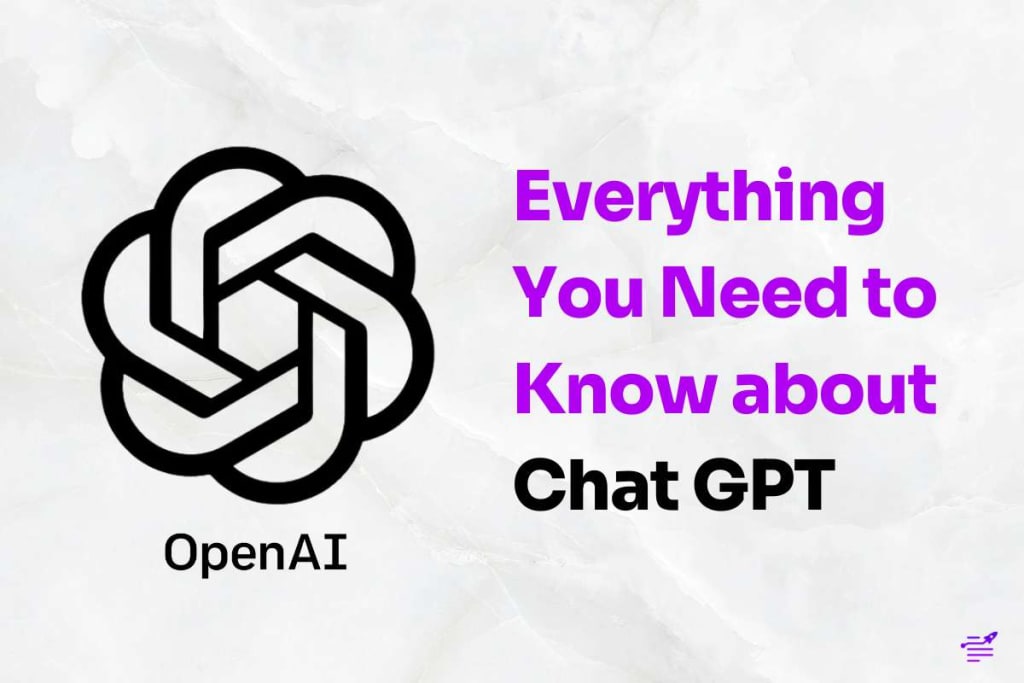Monetizing ChatGPT: Exploring the Top 10 Ways to Earn Money with the Advanced Language Model
How to Leverage the Power of AI to Generate Revenue in Various Industries and Applications

ChatGPT is an advanced language model developed by OpenAI that has the ability to generate human-like text. In recent years, this technology has been used in various industries and applications, including chatbots, language translation, and content generation.
Here are 10 ways you can use ChatGPT to earn money:
1. Chatbot Development: ChatGPT can be used to develop advanced chatbots that can engage in natural language conversations with users. These chatbots can be used for customer service, marketing, and other purposes. Companies are willing to pay for the development of such chatbots, and you can use ChatGPT to build them.
2. Content Generation: ChatGPT can be used to generate high-quality content in various forms, including articles, blog posts, and product descriptions. This technology can be used by businesses to generate content for their websites, social media platforms, and other marketing materials.
3. Copywriting: ChatGPT can be used to generate compelling copy for various purposes, including advertisements, landing pages, and email campaigns. This technology can help businesses save time and effort by generating high-quality copy in a fraction of the time it would take to do so manually.
4. Language Translation: ChatGPT can be used to translate text from one language to another. This technology can help businesses expand into new markets by making their content available in multiple languages. You can use ChatGPT to provide language translation services to businesses.
5. Social Media Management: ChatGPT can be used to manage social media accounts by generating posts, responding to comments, and engaging with followers. This technology can save businesses time and effort by automating their social media presence.
6. Customer Service: ChatGPT can be used to provide customer service by answering questions, resolving issues, and engaging with customers. This technology can help businesses improve their customer experience by providing 24/7 support.
7. Virtual Writing Assistance: ChatGPT can be used to provide virtual writing assistance by generating outlines, suggesting topics, and providing feedback on writing. This technology can help individuals and businesses improve their writing and increase their productivity.
8. Virtual Personal Assistant: ChatGPT can be used to provide virtual personal assistant services, such as scheduling appointments, managing tasks, and organizing information. This technology can save individuals time and effort by automating their daily tasks.
9. Research Assistance: ChatGPT can be used to provide research assistance by generating reports, summarizing information, and providing insights. This technology can help individuals and businesses save time and effort by automating their research tasks.
10. Virtual Interview Assistance: ChatGPT can be used to provide virtual interview assistance by generating questions, providing answers, and offering feedback. This technology can help individuals prepare for job interviews and improve their chances of getting hired.
ChatGPT, like all AI models, has some limitations that are worth considering when using it for various applications. Here are some of the limitations of ChatGPT:
Bias and Accuracy: Like all AI models, ChatGPT is only as good as the data it has been trained on. If the training data contains biases or inaccuracies, the model will generate outputs that reflect those biases. This can result in incorrect or biased outputs, which can be harmful in certain applications, such as news articles or scientific reports.
Lack of Common Sense: ChatGPT is not capable of understanding the context and common sense reasoning that a human would naturally use. This means that it can generate responses that are nonsensical or irrelevant to the prompt.
Limited Understanding of the World: Although ChatGPT has been trained on a large corpus of text, it still has limited understanding of the world. It can generate responses that are factually correct but lack the nuance and context that a human would understand.
Generated Text may be Plagiarized: ChatGPT is capable of generating text that is similar to existing text in its training data. This means that it can generate outputs that are plagiarized, even if it wasn't intentional.
Lack of Emotion and Creativity: ChatGPT generates text based on patterns in its training data, but it does not have emotions or the ability to be creative in the same way that humans do. This means that its outputs may be lacking in emotion, nuance, and creativity.
Lack of Consistency: ChatGPT generates text based on the probability of the next word in a sequence, which means that it may generate outputs that are inconsistent or contradictory.
Ethical Concerns: The use of AI models such as ChatGPT raises ethical concerns about their potential impact on employment and the displacement of human workers. Additionally, the use of AI in certain applications, such as propaganda or fake news, raises concerns about the impact on society and the spread of misinformation.
In conclusion, while ChatGPT is a powerful tool for generating human-like text, it is important to consider its limitations and to use it with caution in certain applications. By understanding these limitations, you can use ChatGPT in a responsible and ethical manner and ensure that it is used to generate high-quality outputs that benefit society.
About the Creator
Reader insights
Nice work
Very well written. Keep up the good work!
Top insight
Eye opening
Niche topic & fresh perspectives






Comments
There are no comments for this story
Be the first to respond and start the conversation.